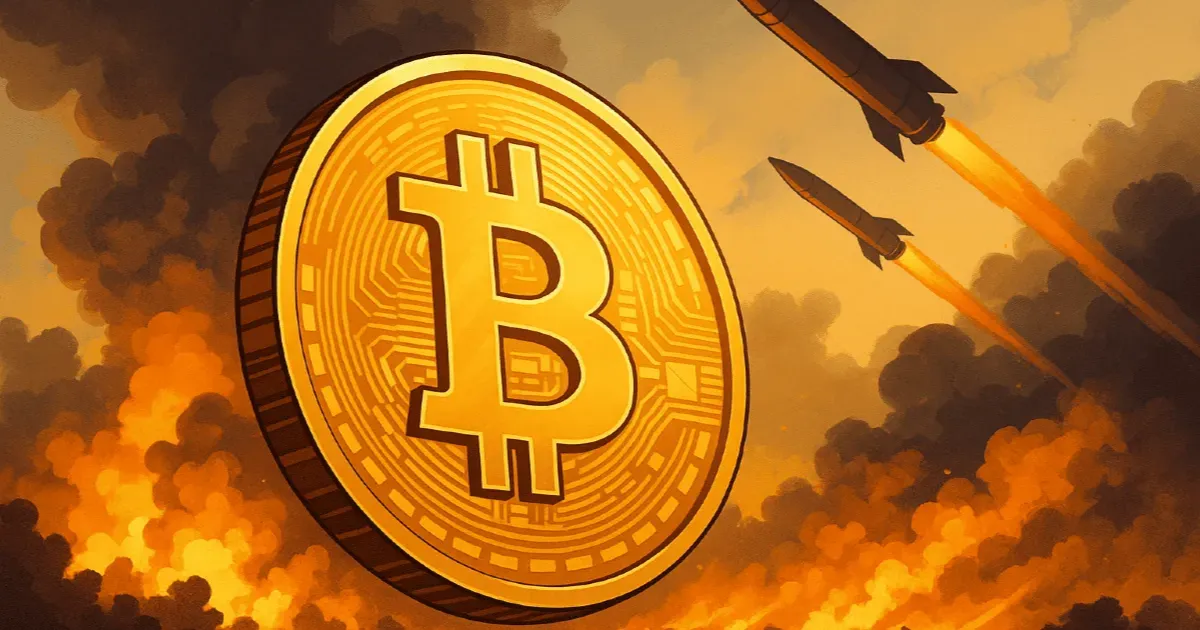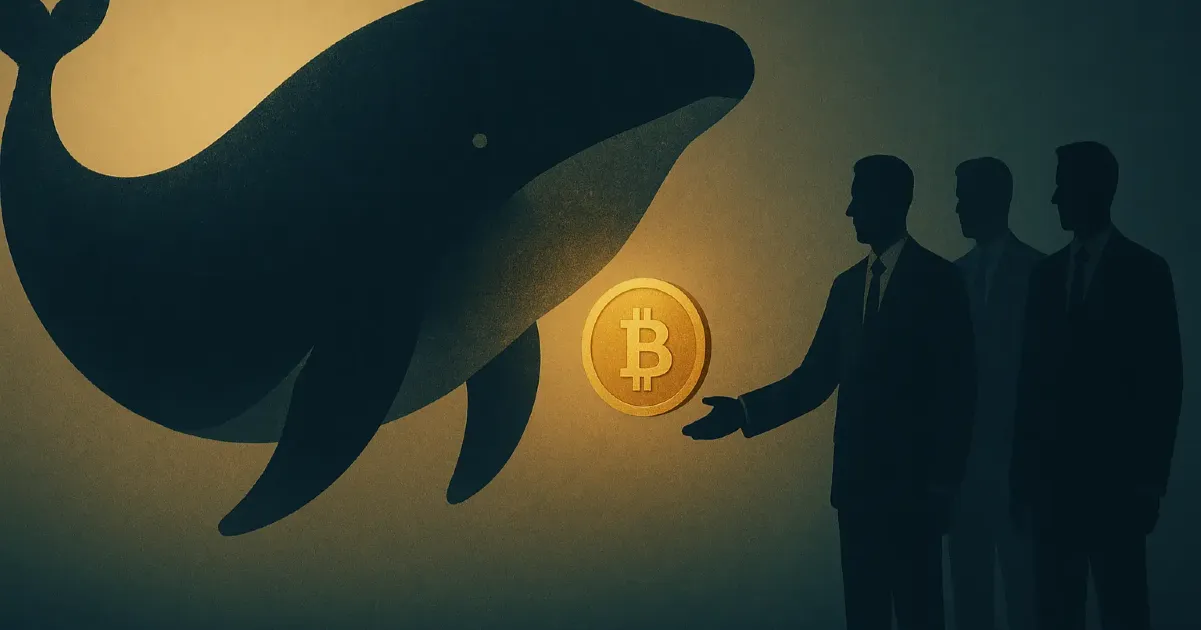The price of Bitcoin has not changed as the Israeli-Iranian confrontation intensifies. An examination of past conflicts reveals a similar pattern, with adoption and institutional engagement being important contributing elements. According to analysts li
The price of Bitcoin has not changed as the Israeli-Iranian confrontation intensifies.
An examination of past conflicts reveals a similar pattern, with adoption and institutional engagement being important contributing elements.
According to analysts like André Dragosch, head of research at Bitwise's ETP platform ETC Group, the price of Bitcoin may decline in the days after a conflict breaks out. Even though the price of Bitcoin is generally declining, it is still seen as a dangerous asset that will probably be sold fast if a war breaks out.
Co-founder and CEO of Bitcoin L2 liquidity protocol Velar, Mithil Thakore, previously told Cointelegraph that, "In the long run, geopolitical conflicts increase the prospects of higher inflation rates globally due to factors like increased fiscal spending, looser monetary policy, supply-chain disruptions, and commodity price spikes, which should all benefit Bitcoin."
Bitcoin has shown remarkable resilience in the face of geopolitical turmoil in the past, but this does not imply that it is a hedge in difficult times.
Here are some examples of how the price of Bitcoin has responded—or not—to major international armed conflicts:
Iran-Israel conflict (June 13, 2025)
Israel launched the biggest strike on Iran since the Iran-Iraq conflict in the 1980s on June 13, hitting dozens of targets in Iran. Over the next few days, the two nations, who are fierce adversaries in the Middle East, have continued to launch strategic missile attacks on one another.
Markets have mostly dismissed worries of a further escalation, even if Israel has called for the US to get involved. Bitcoin is no different.
The asset's price has mostly rebounded, notwithstanding a temporary decline right after the bombings started. "Bitcoin does not seem concerned about the Israel and Iran conflict (yet)," stated cryptocurrency analyst Za.
Michael Saylor, arguably the most well-known Bitcoin bull, is likewise unconcerned. His company, Strategy, paid $1 billion for 10,001 Bitcoin on June 16. The acquisition follows the June 11 launch of Strategy's third Bitcoin-backed preferred stock, STRD, on the Nasdaq.
Israeli-Iranian embassy bombing (April 1, 2024)
Several high-ranking officials were killed when Israel attacked an Iranian embassy complex in Damascus, Syria, on April 1, 2024. Iran retaliated by seizing the Israeli ship MSC Aries and attacking Israel on April 13.
The price of Bitcoin had a brief decline following both days, dropping more than 8% immediately following the April 13 reprisal.
However, Bitcoin continued to rise as markets adjusted to the new standard with it.
Israel-Gaza conflict (October 7, 2023)
More than 1,000 Israelis were killed when Hamas troops from Gaza attacked locations within Israel on October 7, 2023, sparking a conflict and ongoing humanitarian disaster.
While the stock prices of major military manufacturers, like Lockheed Martin, surged, Israeli markets experienced quick and substantial losses.
Bitcoin was performing significantly better than it had before the initial attacks, and it was mostly untouched.
Following the assaults, officials called for stricter regulation of the crypto space after learning that Hamas had raised money in the area. The US Treasury sanctioned a crypto operator headquartered in Gaza who was suspected of having ties to the group.
Elliptic, a blockchain forensic company, stated that there was "no evidence" to back up allegations that Hamas was using cryptocurrency to raise money.
Full-scale invasion of Ukraine by Russia (February 24, 2022)
Following eight years of conflict in Ukraine's Donbas region, Russia launched a full-scale invasion in early 2022 in what Moscow refers to as a "special military operation."
Financial markets around the world were instantly impacted, with the economies closest to Ukraine bearing the brunt of this. Bitcoin's price bucked this trend, rising 16% in just five days following the invasion.
As those escaping overseas tried to use bitcoin to get around currency limitations, exchanges in Russia and Ukraine witnessed cryptocurrency trade at exorbitant premiums.
Ukraine had received more than $70 million in cryptocurrency donations, primarily in Ether, just one week after the war began.
Later that year, Bitcoin crashed, but this was more due to market developments and the demise of the Terra stablecoin ecosystem than it was to worries about the conflict in Ukraine.
The price of Bitcoin and internal disputes
Cryptocurrency's price movements seem to overlook internal problems outside of those that affect traditional markets in North America, Europe, and the Middle East, even though it might be a risk-off asset during times of war in some regions of the world.
After years of hostility between the federal governments of Ethiopia and Eritrea and the left-wing ethno-nationalist Tigray People's Liberation Front, war broke out in the Tigray region of Ethiopia in November 2020.
According to the Catholic Near East Welfare Association, the war was underreported, resulting in millions of internally displaced people and hundreds of thousands of deaths. Geographical dubbed it "the battle the world forgot" in a 2024 report.
The price of Bitcoin also didn't change significantly. The primary story guiding the cryptocurrency market at the time was the assets' extraordinary surge, which was mostly fueled by institutional adoption by Block (later Square) and Strategy (after MicroStrategy) and inflation concerns brought on by the COVID-19 epidemic.
A civil war is still going on in Myanmar after the Tatmadaw deposed the National League for Democracy in a coup d'état on February 1, 2021, mere months after the Tigray conflict broke out.
The price of Bitcoin would hit its highest point ever, $69,000, a month later.
Bitcoin and "proximity" to conflict
The extent of Bitcoin's adoption, or its exposure to or association with traditional markets, is a crucial consideration when discussing the cryptocurrency's response to conflict.
The impact of conflict's geographic proximity has been mentioned by certain economists. There will be greater volatility and losses in financial markets in nations that are nearer a conflict zone.
According to Chainalysis' 2024 Global Adoption Index, developing countries have the highest rates of cryptocurrency adoption overall, with Nigeria, Indonesia, and India at the front of the list. Both on-chain cryptocurrency and retail value received by DeFi protocols as well as centralized services are included in this index.
In contrast, Bitcoin is becoming more and more owned by Western organizations and governments worldwide. By December 2024, ETFs alone held 1% of Bitcoin, which was higher than Satoshi Nakamoto's share.
The US government, licensed cryptocurrency exchanges like Coinbase and Kraken, and ETF issuers like BlackRock are currently the largest holdings.
This level of acceptance and, thus, exposure to conventional financial markets and institutional investment has only lately been experienced by Bitcoin.
In 2013, Bitcoin went on what some consider its first major bull run. At $13, it began the year, rising to $100 by April and $200 by October. Over $1,000 was closed out at the end of the year.
In addition to two armed conflicts—the 2014 Gaza war and the Donbas war, which included Russia's annexation of Crimea—a "crypto winter" began the next year.
Since cryptocurrency was still a specialized field at the time, miners could mine Bitcoin using the graphics card on their gaming PCs. Coinbase and Kraken were just two and three years old, respectively.
There was almost no institutional engagement, and many people thought of cryptocurrency as "magic internet money" that was solely appropriate for supporting illegal behavior on the internet.
Although the start of both wars had an impact on stock markets locally and globally, there was no discussion of how the wars might affect the price of Bitcoin in the crypto media at the time.
The way that Bitcoin responds to war may be changing
The price of Bitcoin may now be increasingly affected by the detrimental effects that armed conflict has on markets due to growing institutional usage, a crypto-friendly US government, and international trade conventions that attract thousands of attendees.
Prior to broad institutional acceptance, nearly all of the aforementioned disputes took place, which resulted in a swift recovery in Bitcoin values. The narrative surrounding Bitcoin has shifted from one of a risk-off to one of a risk-on asset as a result of this paradigm shift. Bitcoin is now more correlated with conventional financial markets than it was before.
Nevertheless, given the current situation, observers remain cautiously bullish about Bitcoin. In a June 16 note, QCP warned that escalation might cause oil prices to rise, especially in the event of an "Iranian blockade of the Strait of Hormuz," and that any US intervention would upset global risk assets.






